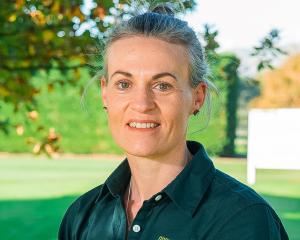
Q. Last time I interviewed you was in 2012, when you were a lower-order sharemilker and a Southland finalist in the New Zealand Dairy Awards and you had been dairy farming for a decade in Southland after moving from Argentina. Why did you have a change in career?
I got a few years of 50/50 sharemilking from 2015 and there was a drop in the payout and I got burnt out and I had to sell the herd. I spent three years working for DairyNZ and then moved to LIC, which is hopefully my final stop.
Q. Do you miss dairy farming?
Not really. I love being on farms and around cows. Spending time with farmers is the thing I love the most and I can do that on a daily basis. I don’t miss milking cows.
Q. What do you do on a daily basis in your consultant role?
I have a book of 30 clients in Southland and South Otago, which I’m intending to grow, and I visit most people every six weeks and do feed planning, feed budgeting and body condition scores to make sure we get the basics right so we can achieve a profitable system.
Q. What is keeping you busy at this time of year?

Q. What do you think is an acceptable percentage of empty cows?
We want to be below 12%. There are a few of my clients closer to 10%.
Q. What’s your tips for having fewer cows empty after mating?
Creating a rising plan of feeding before mating and looking after body condition score and the health of the animal, including preventing mastitis. Something we are doing a lot with clients is milking cows once a day after calving for a couple of weeks and that has made big gains, because we don’t put as much pressure on the cows. We give them time to recover after calving and staff aren’t tired and their stockmanship improves. The production loss of milking once a day is a negative but we keep the condition on the cows, which pays dividends at the peak of production.
Q. When I interviewed you in 2012, you said "the mundaneness of New Zealand is extraordinary"?
Did I say that? (laughing) I have to be careful.
Q. A decade on, has New Zealand improved?
There are a few different things to keep us busy and entertained but I like some of the mundaneness, the predictability and the stability New Zealand provides for people like us that came from overseas.
Q. Have you considered returning to Argentina to live?
Nah, my kids have grown up here and they are making the most of the opportunities with school and sport.
Q. What was the biggest challenge of changing career?
When you are farming you know why you are getting up in the morning, you’ve got a drive and a purpose. That was the hardest thing to replace when we finished farming. For whatever reason, mental health, mid-life crisis, call it whatever you want, but you don’t enjoy farming any more and you change careers and embrace that. At university I always wanted to be a farm consultant so I rekindled that fire and changed my goals and I’m living a new dream. It is a privileged position to try and help a business grow and you get a lot of good stories to tell.















